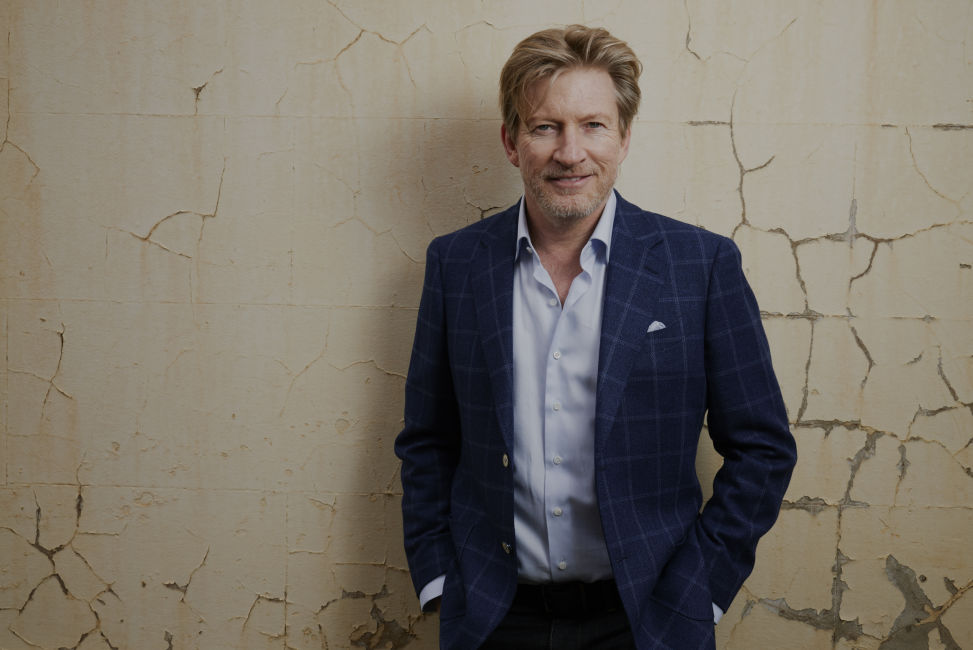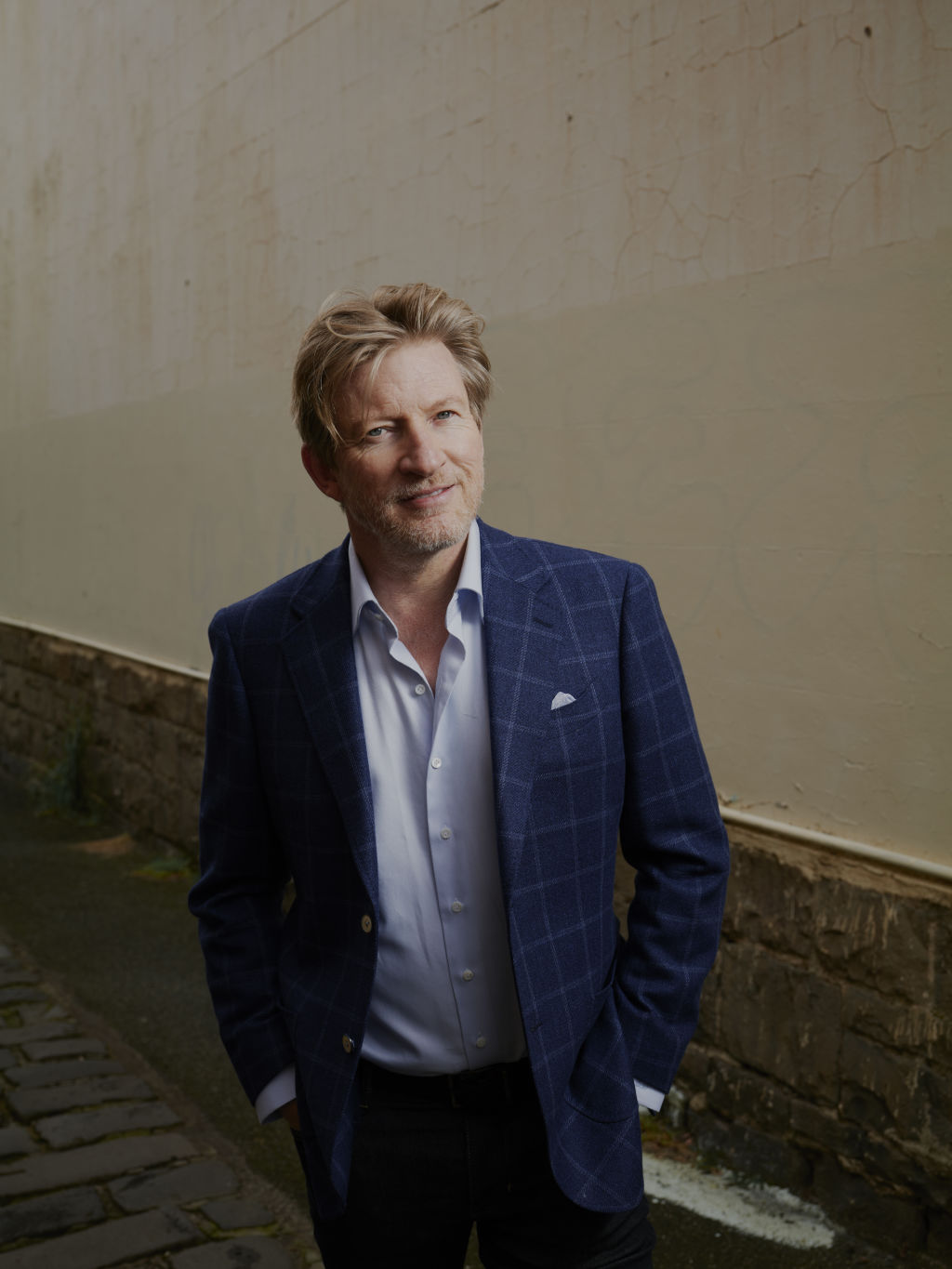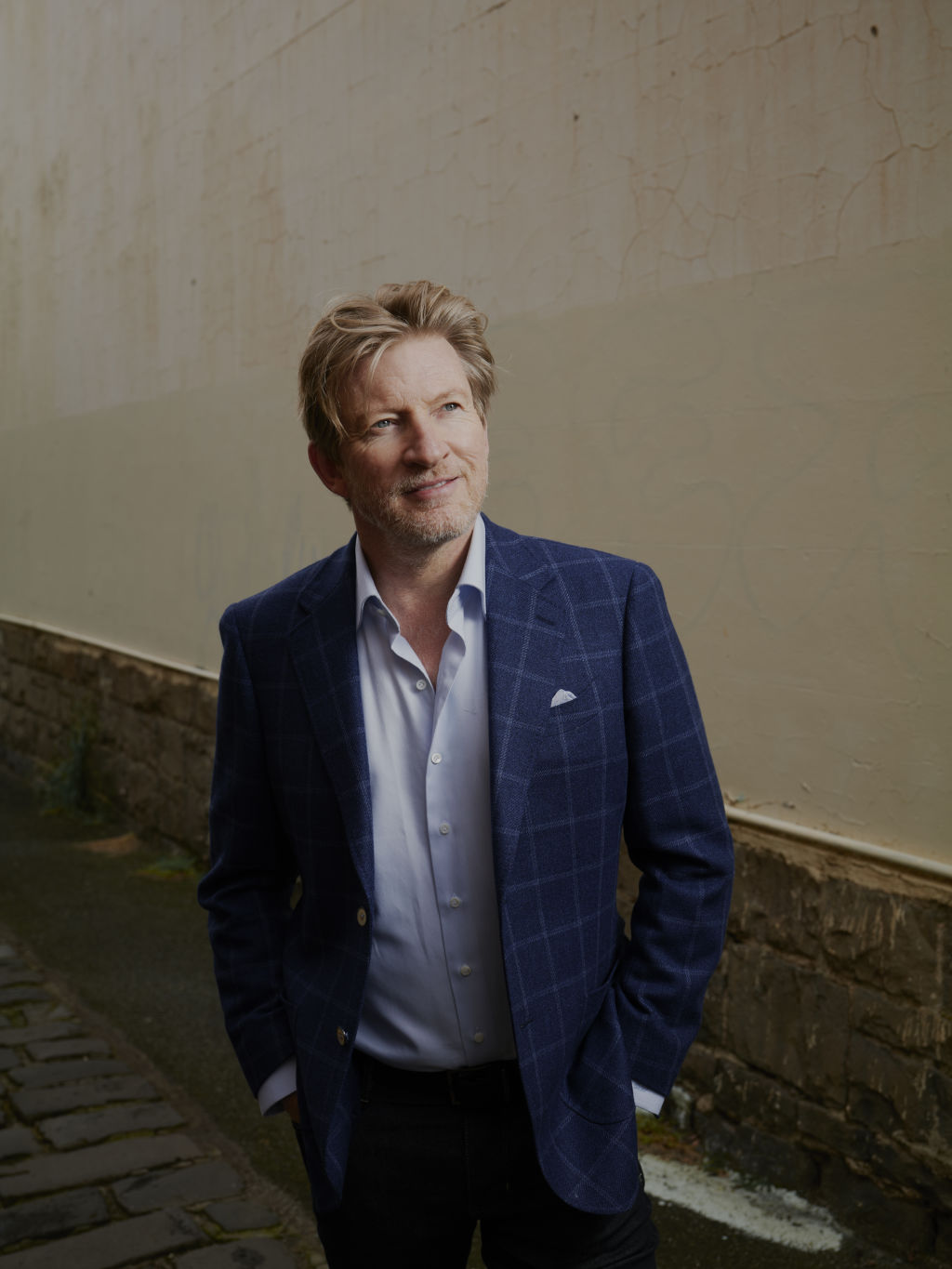David Wenham takes the Melbourne stage in A Christmas Carol

Christmas is coming early to Melbourne this year and David Wenham couldn’t be more pleased. As the miserly lead in the much-anticipated new stage version of A Christmas Carol, the Aussie acting legend is having the time of his life.
It’s usual for actors to talk up their latest production, but rare for one to sound quite so enamoured as Wenham does.
“I’ll be honest, I know of no show like this show,” says Wenham, who has been lured into making an all-too-rare return to treading the boards.
“I’ve been asked numerous times to do theatre, but nothing has really appealed to me and it’s tricky because you have to commit so far ahead of rehearsals. Agents don’t really look fondly on you taking yourself out of the market for so long!”
A Zoom chat with director Matthew Warchus (best known for Matilda the Musical), who developed the original London production with scribe Jack Thorne (he of Harry Potter and the Cursed Child), was all it took for Wenham to sign on the dotted line – whatever reservations his agent may or may not have had.

Since making its debut at London’s The Old Vic five years ago, A Christmas Carol has returned to haunt the West End every yuletide and even netted itself an impressive five Tony Awards after a blockbusting transfer to Broadway.
This run of glory is particularly impressive considering the show was devised as a one-off.
Associate director Jamie Manton says this surprising longevity is down to Jack Thorne’s script. His writing finds a way to indulge and embrace the delicious traditions and cliches around Dickens’s original story – it promises to be the closest Melburnians will ever get to a white Christmas, barring a surprise ice age – while digging down deeper than ever into the human element.
“There’s an amazing line in the piece that says we are all made and we all make in turn,” Manton says. “The script looks into generational trauma in the sense of Scrooge’s absence of love from his father and then seeing his father throw away all their money.
“So he’s learned to have [the] ambition to become a great man through wealth but believes that love isn’t important.”
Manton says that, while audiences can expect a bit of spectral magic, the three ghosts of Christmas are here recast as de facto therapists, helping Scrooge work through his issues – past, present and future.
As he puts it, this “emotional magic” has really struck a chord with audiences, who tend to leave the theatre with giddy, festive grins firmly in place.
As Scrooge, Wenham should be a big draw for people of a certain age who remember him from his sex symbol days as Diver Dan in Sea Change, even if his transformation from beachy hunk to elderly miser might offer a few of them a reminder – like the ghost of Christmases long past – of how quickly time moves on.
When I cheekily suggest his casting as Scrooge might signify the 57-year-old has reached the inevitable stage of an actor’s career where he is less Romeo and more King Lear, Wenham studiously ignores my bait and notes Lear and Scrooge are indeed similar in the way they go from one extreme to another.

Overseas, the part has been played by such illustrious names as Rhys Ifans, Paterson Joseph, Andrew Lincoln and Bradley Whitford. What was it about Wenham that made him seem the right pick for an Aussie Scrooge?
“David’s interpretation is finding this kind of feral nature in Scrooge,” Manton says. “He’s someone who’s become so closed off he’s like this animal stuck in a cage that bites anything that comes near it.
“David has brought this wonderful darkness to the part.”
Wenham says that darkness is essential to the first half of the play, where Scrooge is carefully constructed to lack any possibly redeeming characteristics.
“The audience will completely despise this character, and then the big challenge in the second half is to win them over and to see that anybody, regardless of how despicable and wicked they are, given the opportunity, can actually redeem themselves and open up, and can change.”
Scrooge’s redemption from villainous miser to generous philanthropist is, after nearly 200 years, the defining example of character growth, setting a model that has been rewired across the generations in everything from My Fair Lady to Groundhog Day.
It’s tempting to wonder if things are a bit different in 2022, when past sins tend to be dragged up to bring down the most virtuous of public figures. Do today’s audiences still believe in redemption?
“I think we have to have hope,” Wenham says. “Particularly at this time of the year, I think there’s a need among us as a community to look for the light, because it’s very easy to go the other way.
“We’re in a strange place at the moment, all around the world, and I think stories like this are pretty potent and can affect people in a really positive way.”
A CHRISTMAS CAROL \ Until December 29, Comedy Theatre
States
Capital Cities
Capital Cities - Rentals
Popular Areas
Allhomes
More







